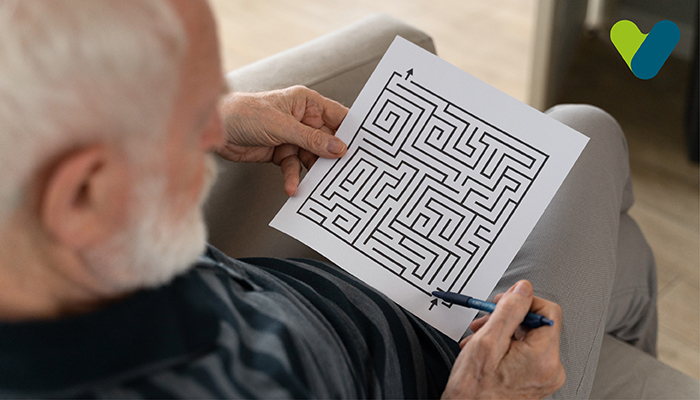An Alzheimer's diagnosis is heartbreaking. It is scary. It is downright dreadful. It might even be shocking. But it's not the end of the world, certainly not the end of your much beloved parent or other senior and also not the end of fun activities and bonding with your aren't or other dear seniors.
In fact there is a whole buffet of fun and actually helpful activities that can be performed with patients suffering from Alzheimer's. Some of these might even help spark memories here and there.
However, before we deep dive into the various activities that should be practiced along with Alzheimer's patients, let us understand the fundamentals, that is what Alzheimer's is, how it manifests and how to adjust your expectations as a caregiver so that you do not get frustrated.
What Is Alzheimer’s DIsease?
Alzheimer's disease affects the brain. It is progressive and degenerative (which in normal words means that it keeps getting worse). Alzheimer's causes degeneration of brain cells and their connections.How Alzheimer’s DIsease Manifests?
"Brain cells and their connections'' are what give us our memory, our ability to reason and understand, our space and time orientation, abstract reasoning and basically all our brain functions. Alzheimer's presents itself as loss of memory, feeling disoriented (what day/ year (yes, year) is it? Where am I? How did I get here? When did we move here) and an overall inability to rationalise.Remember that this is all not going to happen overnight. The degeneration is very, very long term and the good news is that you can probably slow the pace of degeneration.
Basics Tips for Caregiver of Alzheimer’s DIsease Patients
You do not want just activities that fill up their time and keep them out of bed (because naps too frequently are bad for Alzheimer's patients and quicken the pace of degeneration).Choose activities that link to things that they enjoyed doing in the past or excelled at in the past. You may want to water down the activity a bit to suit what they are capable of.
Alzheimer's affects behaviour in addition to memory so they might also become irritated or overwhelmed easily. You may even witness lethargy and childish tantrums.
Activities should fall in one of the following categories
- It should help them to express themselves as their ability to do so verbally might impaired due to degrading mental functions.
- It should activate or sustain connections with other people - it's okay if they don't remember who they are or if they call your children by your name. Correct them, remind them and move on.
- The activity should reduce anxiety, irritability and frustration.
- It should have the potential to spark memory.
9 Activities for Alzheimer’s DIsease Patients
1. Culinary
Simple cooking and baking recipes with easy to follow instructions - just like the kind you might let children try - are an excellent activity to try with a patient suffering from Alzheimer's.The key is to keep it simple and avoid having very high expectations. Also, try to keep recipes chosen healthy because surely you will not deprive them of eating what they have prepared.
2. Helpful Around the Home
This is India and nearly all of us have house help but that said, a little tidying and folding of a batch of laundry and other small tasks can truly help the Alzheimer's patient stay on top of things. Moving their hands to perform a simple and familiar task does wonders for those brain cells and their connections. Identify activities that are safe and that do not repulse them.Sorting is a favourite and a very commonly recommended activity for patients with Alzheimer's. Need those coriander or basil leaves removed from the stem? Why involve your dear senior.
They can help cover books for the new school term, sharpen pencils for school the next day… The list is endless and these activities foster closeness and bonding.
3. Books (yes, books!)
If they can read with ease, they can read books but if not, at least encourage the Alzheimer's patient to look at books they used to love. It might spark some sort of memory.4. Read the Newspaper (very important!)
It's hard to forget what year it is and other important memories when you read the newspaper daily. If for any reason, the patient is unable to read, encourage them to at least listen to news bulletins.5. Participative enjoyment of music
Don't just have them listen; get them to sing along. If they previously played a musical instrument, place it nearby and let them take it themselves if they feel like it.Play games like antakshari and have a little jam session with near and dear ones often.
6. Gardening
Gardening helps with anxiety, feels very productive and keeps the patient active. It is also a daily and regular activity and as such it might help with memory retention to some extent.Needless to say, keep it simple and safe. No climbing, preferably and have someone accompany them outside if the gardening area is large or dense.


